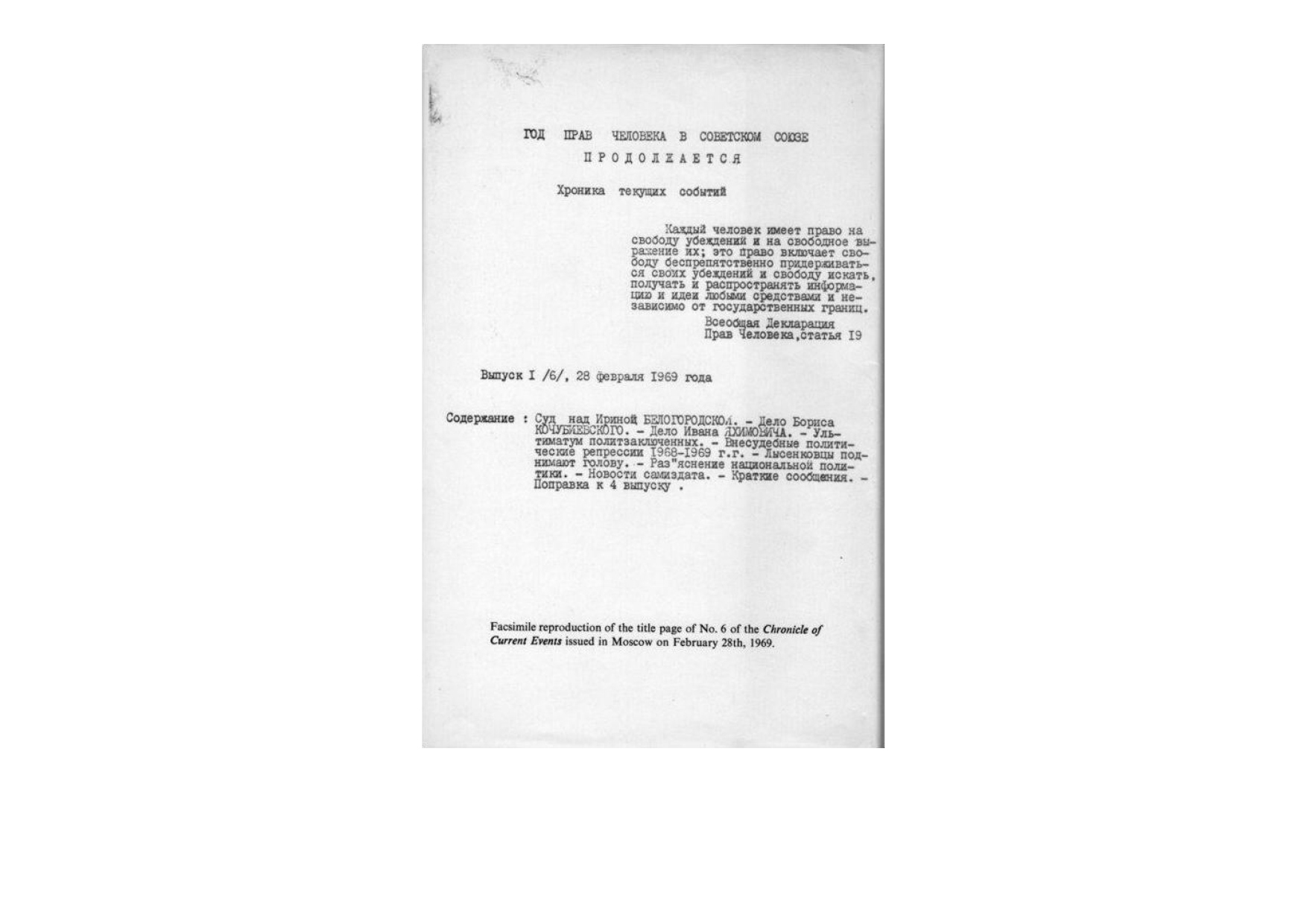editing

see also amateuring, multiplying form, republishing, rereferencing, typing, writing
As soon as a reader edits a text, its materiality changes – whether unintentionally or through more intentional methods, such as republishing in a different format to make the text more accessible to a wider public. Samizdat publishers often considered themselves editors, or typists (rather than authors) due to the unwanted attention and risk that this credit would bring. As they reproduced texts by hand, a slippery form of authorship evolved through human error and also particular idiosyncratic preferences for a new phrase, approximate translation or text structure. Vladimir Bukovsky summarised the process of self-publishing as “Samizdat: I write it myself, edit it myself, censor it myself, publish it myself, distribute it myself, and spend time in prison for it myself.” The responsibility these self-proclaimed editors took upon themselves by republishing dissident material bound them to the texts; entwined in their creation and distribution. When no writer wants to be an author, everyone becomes an editor.
Image: Facsimile of A Chronicle of Current Events (Russian: Хро́ника теку́щих собы́тий), the longest-running Samizdat publication (1968-1982)
